How To Handle And Discourage HenPecking In Your Flock
Get tips on what you can do to discourage henpecking in your flock. When raising chickens your goal is to keep them healthy, happy, and safe. Safe from predators and safe from each other.
But that isn’t always easy. If you have a chicken that is getting picked on, this guide will help to protect her and the rest of your flock. Use these tips for raising chickens that are healthy and happy.
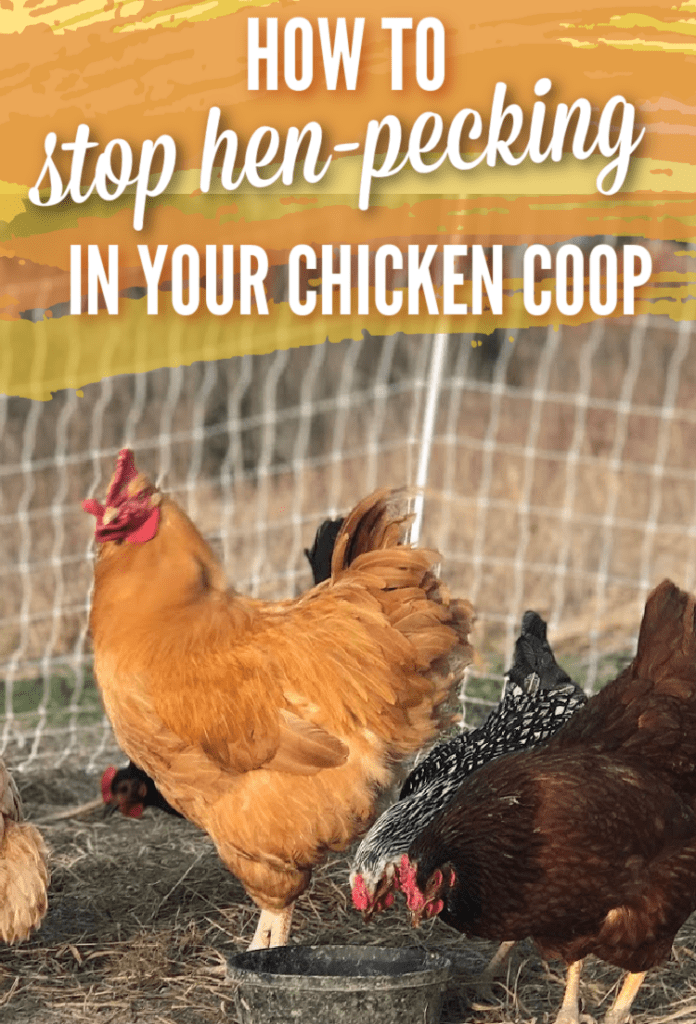
When I have people ask me about getting started with animals, the first thing I turn to is raising chickens. Chickens are a relatively easy way to test the livestock waters.
They are low maintenance, have low startup costs and require little intervention. As long as you have clean water out at all times, fresh food daily, and a clean and secure chicken coop your hens will be pretty self-sufficient.
There are a few times, however, when we do have to step in and henpecking is one of those times.
Henpecking or chicken bullying is something that does not happen in all coops. I have been raising chickens for close to 8 years now and have only had 2-3 instances to deal with.
If you have issues with a chicken bully, don’t think you need to get rid of hens right off the bat. There are a few things you can do to stop the henpecking and hopefully restore peace to your coop once again.
What is henpecking?
Henpecking is when one or more chicken gangs up on another and pecks at her or even plucks her feathers out. There may or may not be blood and injury right away, so catching things before they get out of hand is important.
In our situation, I had a hen that was bullied and had quite a few of her feathers missing. There was no blood which was a very good sign.
Blood can bring out the cannibalistic nature in chickens, and once they get a taste they will continue to peck at that spot until someone steps in to stop it.
What causes hen pecking?
There are several factors that can cause some chickens in a flock to bully another hen.
1. Not enough room.
If you are housing too many hens in your chicken coop you will definitely have pecking issues. Chickens like to move around so you need to make sure you have ample room for them to do so.
When building your coop, aim for 2-3 square feet per chicken inside and 8-10 square feet per chicken outside in the run.
Chicken Coop Resources:
2. Not enough roosts.
Have you ever heard the term “pecking order”? Well, it is definitely true and nothing shows it more than on a chicken roost.
If you use a ladder as your roost, go in after dark and look at how the hens are perched. More often than not you will have some on the top, a lot crowded in the middle, and one or two at the very bottom.
The ones at the top are the most dominant hens in your flock. That doesn’t mean they are your bullies, but you may want to keep an eye on them just in case they are.
3. Not enough food/water.
If you are raising chickens that number seven or more, then you may need more than one water/food option.
I like to have one hanging food feeder for each 5-7 hens and at least one water source for every 10 hens. Since I also free range our chickens I will have at least one water option outside as well.
More often than not, the hen pecking will happen at the feed bowl and the more dominant chickens peck at the others.
4. Weak or sick chicken.
If you have a chicken that is timid, weak, sick or injured she will more often than not be henpecked. For that reason, it is important to have a place to put sick or injured hens until they are healthy.
This will really keep henpecking from starting in the first place. Chickens, once they do something, will do it over and over and over. Keeping bad habits from starting will save you quite a few headaches.
What can you do to stop hen pecking?
There are a few things you can do to stop henpecking inside of your chicken coop. To help catch things before they get out of hand, get into the habit of inspecting your chickens. I like to do this whenever I am out collecting eggs. I will look at each hen and watch her behavior.
A few things to look for are:
- A chicken that is limping.
- A chicken that is standing off by herself.
- A chicken with a gray or pale wattle or comb.
- A chicken that is missing feathers.
- A chicken that is panting on a day that is not hot.
Tip #1 Get your victim out.
Before you do anything else, get that hen out of the coop.
When raising chickens it is important to have a place to keep a sick or injured chicken away from the flock while she recovers. This can be in a dog crate, in a spot in your barn, or in a separate spot in your chicken coop.
Hubby built this little house that is part of the coop yet fenced off. We call this our chicken condo and we use more often than you may think. This area works great for isolating chickens or roosters. The hens feel like they are part of the flock yet they are safely away so they can recover.
Yes, our condo is outside of our coop, but I have never had a hen leave the flock. Even though they are outside they will stay where the other hens are. So, unless you have a predator issue you can safely let your hen free range next to the coop and she should stay close by.
If you do not have an option such as this, a small dog crate will work just fine. I would keep it inside the hen house (if you have room) at night so your hen feels she is with the flock, then during the day let her out so she can eat and scratch.
Remember, she is not sick so you can safely do this. If she is sick as well, I would keep her away from the flock until you are sure she is healthy.
Tip #2 Treat all wounds.
Like I said before, chickens do have a cannibalistic nature. So your first step, once you get the hen out, is to treat any wounds or injuries she may have.
Clean the infected area with warm soapy water and pat dry. If the wound is a bit deeper you can also flush the wounds with hydrogen peroxide, iodine, or betadine.
You will need to check on her daily to make sure her wounds do not get infected.
Tip #3 Support her health.
On our homestead, we like to do things as naturally as possible only relying on medications when necessary or advisable by a vet.
We like to use Kelp and apple cider vinegar(ACV) to support a healthier flock. They are two of my top items when I have a hen that needs help.
Kelp is awesome for supporting the immune system as is ACV. Both are easy to get and the chickens love them. Simply sprinkle a little kelp on your chicken feed once or twice a week, you can also add a little ACV to your chicken’s water as well.
Natural Chicken Care:
Tip #4 Keep them out until they are strong and healthy.
I will keep my hen separate for at least 2 weeks until she is strong and healthy. It will take a while for her feathers to grow back, but my goal is her stamina.
Remember bully hens will pick on weak or injured chickens so your goal is to make sure she is strong and healthy and better able to fend for herself.
Tips #5 Keep an eye on her.
When you are sure your hen is recovered, put her back into the flock but keep a close eye on her.
SLCG PRO Tip: if you think you may have a hard time remembering which one she is, tie a small piece of colored yarn to her leg first. If you see any issues of henpecking happening again you have some decisions to make.
Tip #5 Cull your flock.
Not my favorite option but one that may be required if none of the other tips work.
Culling simply means to remove and you have a few options for this.
1. Pull the bully and sell her.
2. Pull the victim and sell her.
Now I know your heart may say keep all the chickens and give them as much time as they need to change. But a farmer told me a long time ago, if you want to raise chickens that are healthy and flourishing, keep the best and cull the rest.
That means to keep the strong animals and let go of the weak and problem animals. This is not always a rule I follow, but I do keep it in mind when making these decisions.
Tip #6 Identify the bully.
The easiest way to do this is to catch the bully in the act.
More often than not it will happen in 1-2 places. At the feed bowl or on the roost.
When you are out feeding your chickens keep a watch on your feed bowls and see if there is any pecking or squawking happening. Keep watching over the next few feedings to see if it keeps occurring or escalates. Make a note of the troublemakers and the weaker hens when this happens. If you are not sure you will remember, simply tie a piece of colored yarn to the hen’s ankle.
After dark, take a flashlight and go into your coop.
Check out your roost, I would bet that your hen-pecked hen is on the bottom or lower rungs. And you will most likely find your bully on the very top.
If you have not tied a string to your bully’s leg you can do so now. Hens move very little in the dark so this is your best time to get a little undercover work done.
Like I said before, I rarely have issues of henpecking in my flock. But each time I did, I was able to get the hen out and give her a safe place to stay while she healed. In all but one instance, I was able to safely return the hen to the flock and no more issues came up after that.
I did have one time, however, when the bully just kept right on bullying. No matter what I did, nothing would stop her bad behavior.
I chose to remove the bully, at that point, and keep the victim and here’s why.
Sometimes a bully hen can be a bully to humans too and if you collect eggs or have children that help in the coop, friendly hens are usually the better way to go.
I hope you found this article helpful on what you can do to discourage henpecking in your flock. Use these tips to raise chickens that are friendly, healthy, and happy right in your own backyard.

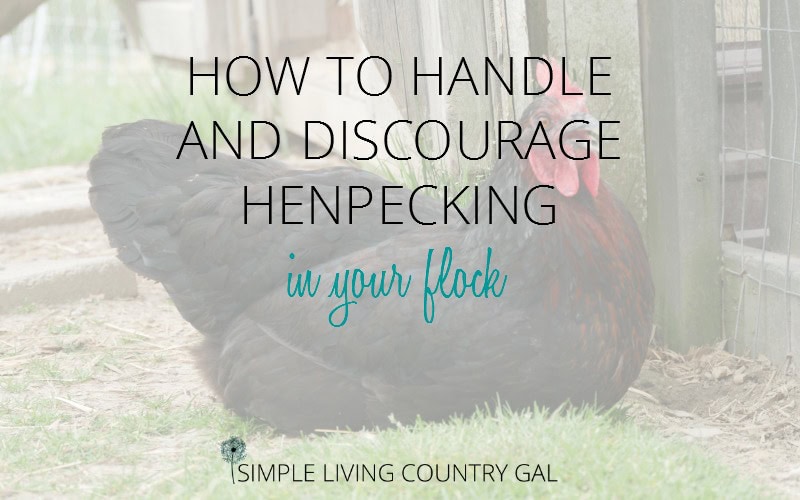
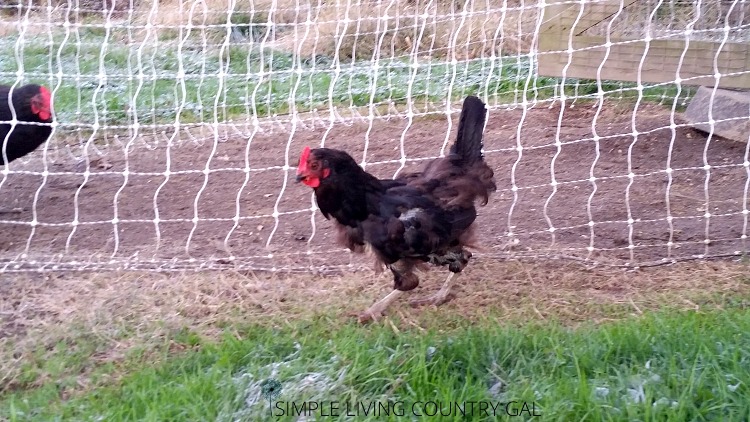
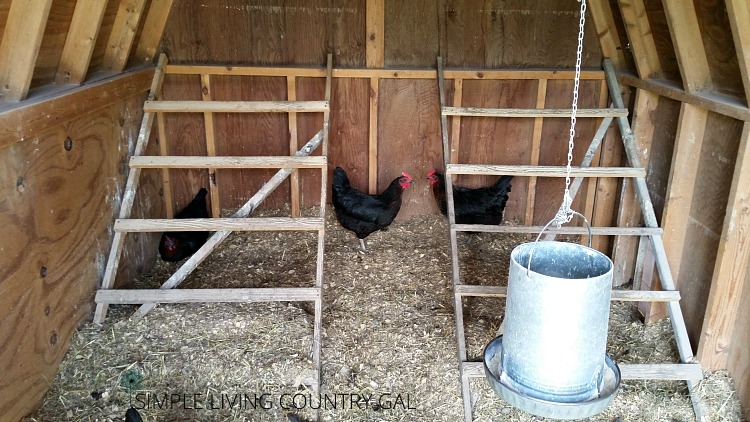
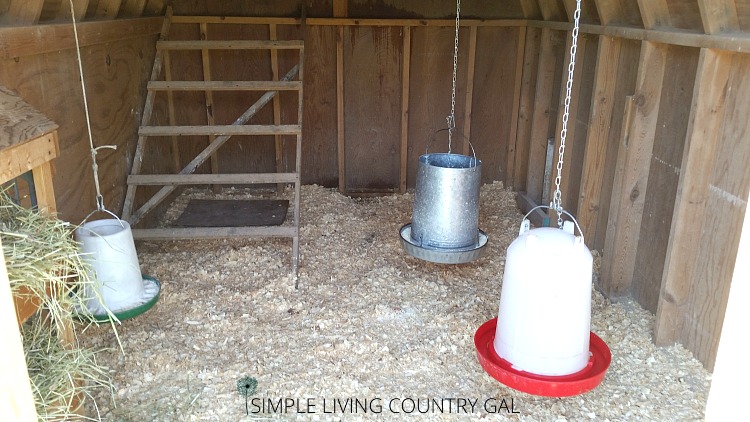
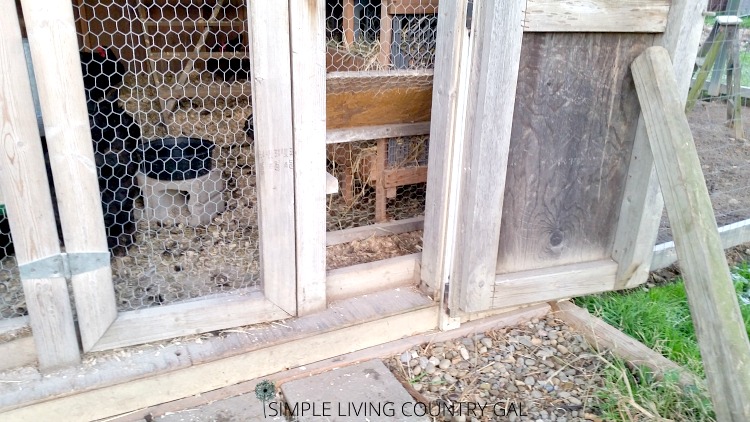
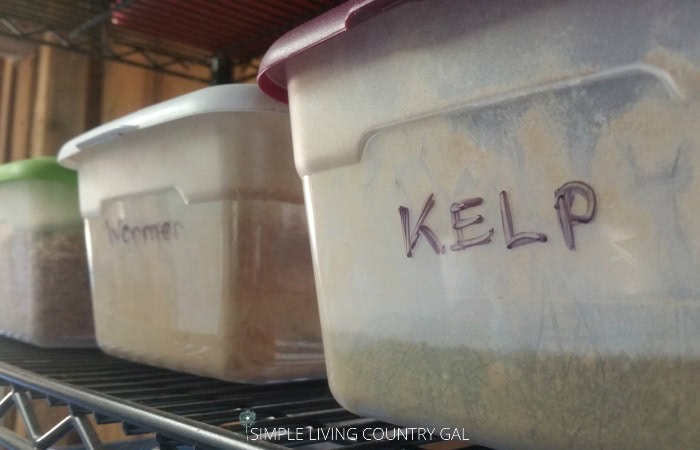
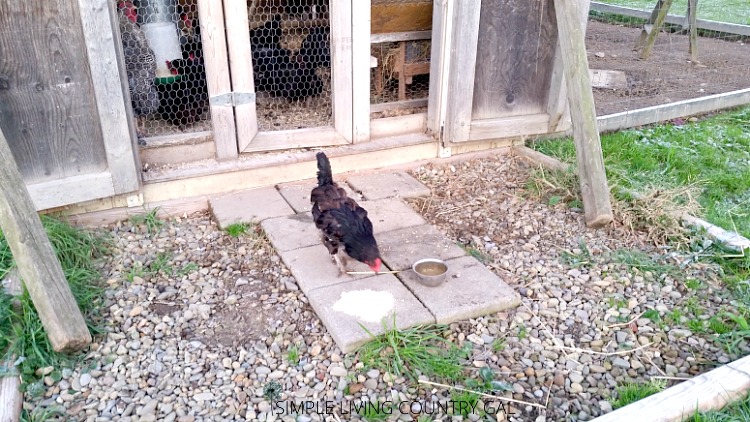

I have 6 chickens 2 are roosters they are a year old, 3 months ago I got 5 white leg horn hens I keep them in a dog crate at night. I tried to let them out with the others but they bullied them until they drew blood, so then I separated them big chickens out in run smaller chickens in coop all day. When can I let them out together? Thanks Ellen
Hi there Ellen,
The problem with Leghorns is they are a small breed and do tend to get picked on quite often. When have bullying issues that are not resolving you may need to help the “little gals” out. Make sure you have obstacles in your run and coop that your chickens can hide around. This will just help the bullied girls find a safe place while the bullies have more time to get used to them. I only separate the hens that are getting bullied when blood is drawn. I would set up some obstacles (a pile of branches in the run or a few logs and that may help them learn to get along. If things do not get better, you may have to consider selling your bullies just to keep the peace. I tend to raise the same breed each time to help deter bulling a bit.
hope this helps!
Tracy Lynn
Thank you for your article, it was incredibly helpful. I separated my poor bullied hen and got some treatment suggested over at the Tractor Supply Co. called MicrocynAH Poultry Care. She said to spray it on my hens injuries 3 times a day. Now, lets hope she recovers and I find out who the instigator of such mean hen behavior is. Thanks again!
Good luck finding the culprit! Sometimes that can be the hardest part, but you may see her be aggressive at feeding time.
Tracy Lynn
Thanks for this great article. Really appreciated.
I have 2 baby’s one silky is 4-5 days old and came out bullying my 2 week old frizzle. It constantly pecks and aims for the head. My frizzle was happy jumping around before the silky hatched now hides or lowers her head . I’ve noticed she shakes her head now. I put a petition through the middle of my playpen they’re in making their own sides . I will try putting together in day or two and see what happens. Have you ever know one to be born and bully older one.
Oh yes, chickens can be born more dominant from day one. What you’re doing is right.
When you are ready to put them together, be sure you have 2 waters and 2 feeders so they do not have issues when eating. Also, put obstacles in the playpen to give them a place to escape to if they need it.
Good luck
Tracy Lynn